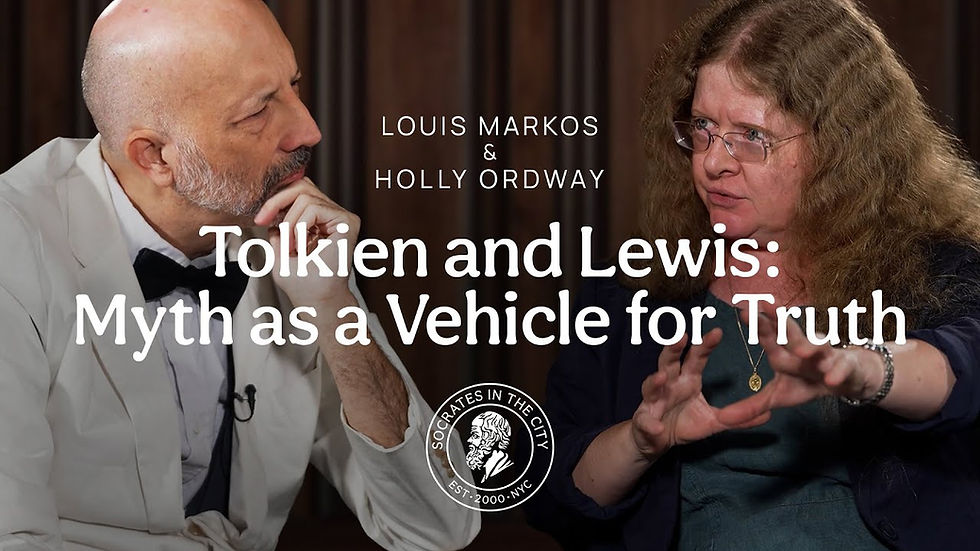The Wisdom of Children. A Parable by Leo Tolstoy.
- Andy McIlvain

- Jan 23, 2024
- 4 min read
“But when Jesus saw it, he was indignant and said to them, ‘Let the children come to me; do not hinder them, for to such belongs the kingdom of God’” Mark 10: 14
The Wisdom of Children. A Parable by Leo Tolstoy.
Children are at the bottom of the worlds social hierarchy, this is true today as it was in the time Jesus walked the earth.
In our world today children are exploited, aborted and killed routinely.
Like many of God's commands we resist being fruitful and multiplying, we rebell.
But children, and we have all been children see the world, at least for a few years in a more genuine and honest way.
Today make a point of honoring the chirldren around you, love them, praise them and pray for them for such belongs to the kingdom of God!
How Did Jesus Interact with Children?
Scripture records few instances of Jesus interacting with children, but in each one we see Jesus treat the children with kindness and love, therefore showing how much He values them.
Probably the most well-known account of Jesus interacting with children is found in Mark 10: “People were bringing little children to Jesus for him to place his hands on them, but the disciples rebuked them. When Jesus saw this, he was indignant. He said to them, ‘Let the little children come to me, and do not hinder them, for the kingdom of God belongs to such as these.’ . . . And he took the children in his arms, placed his hands on them and blessed them” (verses 13–14, 16). Here Jesus not only welcomes the children into His presence but also blesses each one individually.
The Bible records that many parents, knowing Jesus’ love for children and His ability to perform miracles, brought their ailing children to Jesus to be healed. These healings included curing diseases (John 4:46–52) and casting out demons (Mark 7:24–30; 9:14–27). Jesus also raised at least one child from the dead, as related in the story of Jairus’s daughter (Luke 8:40–56).
Over the course of His ministry, Jesus often presented children as an example of the type of faith adults are to have. When Jesus blessed the children, He told His disciples, “Truly I tell you, anyone who will not receive the kingdom of God like a little child will never enter it” (Mark 10:15). In another instance, when the disciples were fighting about who would be the greatest in God’s kingdom, Jesus brought a child to stand in their midst. He then chided His disciples: “Truly I tell you, unless you change and become like little children, you will never enter the kingdom of heaven. Therefore, whoever takes the lowly position of this child is the greatest in the kingdom of heaven” (Matthew 18:2–4). According to Jesus, the qualities of children that are worthy of emulation are humility and simple acceptance.
Jesus wants each of us to possess a childlike faith; that is, a pure, unassuming, and humble faith. This straightforward type of faith allows us to receive God’s gift of salvation without pretention or hypocrisy. It allows us to believe unswervingly that God is who He says He is. Like children who rely on their parents’ provision for daily needs, we should humbly depend on our Heavenly Father for provision in both the spiritual and physical realms." from the article: How Did Jesus Interact with Children?
Video from neuralsurfer
"Short, beautiful, and revealing about the wisdom of children when a conflict arises. Told by the master story teller, Leo Tolstoy." from video introduction
Leo Tolstoy summary
"Leo Tolstoy, Russian Lev Nikolayevich, Count Tolstoy, (born Sept. 9, 1828, Yasnaya Polyana, Tula province, Russian Empire—died Nov. 20, 1910, Astapovo, Ryazan province), Russian writer, one of the world’s greatest novelists. The scion of prominent aristocrats, Tolstoy spent much of his life at his family estate of Yasnaya Polyana. After a somewhat dissolute youth, he served in the army and traveled in Europe before returning home and starting a school for peasant children. He was already known as a brilliant writer for the short stories in Sevastopol Sketches (1855–56) and the novel The Cossacks (1863) when War and Peace (1865–69) established him as Russia’s preeminent novelist. Set during the Napoleonic Wars, the novel examines the lives of a large group of characters, centring on the partly autobiographical figure of the spiritually questing Pierre. Its structure, with its flawless placement of complex characters in a turbulent historical setting, is regarded as one of the great technical achievements in the history of the Western novel. His other great novel, Anna Karenina (1875–77), concerns an aristocratic woman who deserts her husband for a lover and the search for meaning by another autobiographical character, Levin. After its publication Tolstoy underwent a spiritual crisis and turned to a form of Christian anarchism. Advocating simplicity and nonviolence, he devoted himself to social reform. His later works include The Death of Ivan Ilich (1886), often considered the greatest novella in Russian literature, and What Is Art? (1898), which condemns fashionable aestheticism and celebrates art’s moral and religious functions. He lived humbly on his great estate, practicing a radical asceticism and in constant conflict with his wife. In November 1910, unable to bear his situation any longer, he left his estate incognito. During his flight he contracted pneumonia, and he was dead within a few days." from the article: Leo Tolstoy summary


Comments